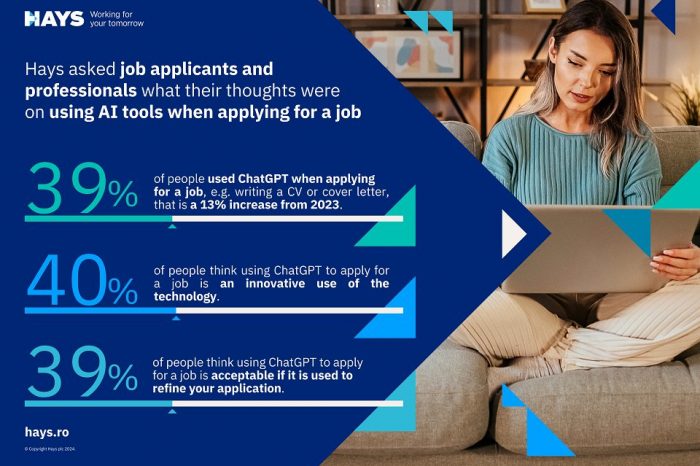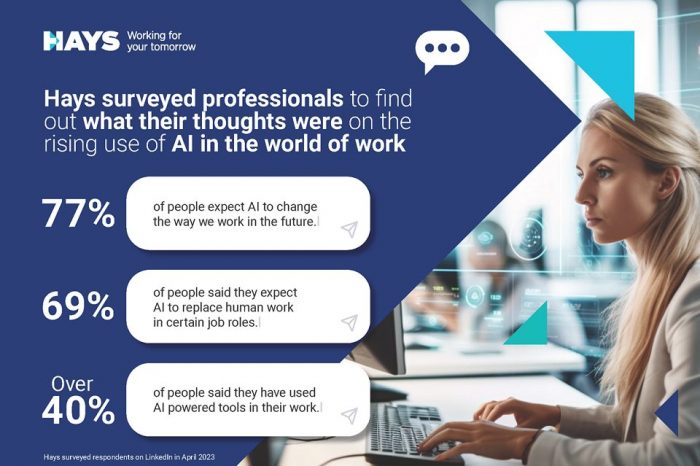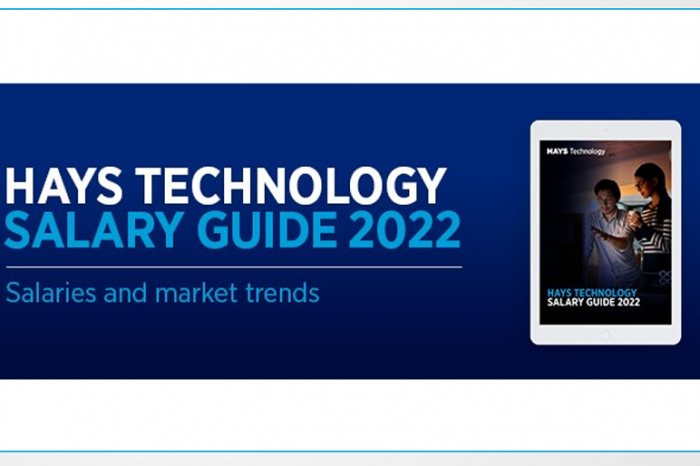Hays: Disconnect in the importance of learning between employers and employees

- 82% of employers are concerned about skill shortages within their organisation
- Workers have shown an appetite for upskilling, with 83% of workers open to learning new skills
- However, only 48% of workers believe the learning resources available to them suit their needs
Hays, the world’s specialist leader in workforce solutions and recruitment, has revealed that while most organisations are worried about skill shortages, only half of workers believe the learning resources provided by their employers meet their requirements to allow them to upskill within their role in a constantly evolving world of work. This contrasts with 60% of employers who believe the resources they offer meet the needs of their workers.
The findings come from the Hays Learning Mindset Report 2022, a survey which received over 20,000 responses from both employers and professionals across 26 countries. Hays conducted the survey in conjunction with Go1, one of the world’s largest corporate education content hubs for on-demand training and resources, to gain an understanding into the learning mindset of both employers and employees.
Importance of learning new skills
When asked how frequently their role requires them to learn new skills, 64% of workers said that they either always or frequently need to learn new skills. Only 8% said they either rarely or never had to require new skills. 42% of workers said there wasn’t a clear development plan currently in place with their employer that involves specific learning, with 27% stating there was.
As the world of work continues to evolve, there is a constant need for workers to upskill to ensure their skills remain relevant, and to make sure that organisations have the necessary skills among their workforces.
Alistair Cox, Hays CEO, said, “The speed at which digital transformation has taken place has not been matched by the supply of talent available for these roles. At the same time, what employees look for from their jobs and workplace has changed, and what is expected of employers is no longer the same as it was previously.
Cox continued, “The need for new skills is not limited to just one sector – it’s an imperative everywhere, and for everyone. As automation increasingly takes over the delivery of repetitive tasks, workers need to upskill their capabilities to ensure they can contribute to more specialised roles.”
Opinions between employers and employees differ
The survey revealed that 83% of workers are highly interested in learning new skills, whereas only 48% of employers believed their employees were so inclined. The survey revealed that when it comes to outcomes of learning there is another difference in perception, as 81% of workers believe they regularly apply their new skills effectively, which compares to only 60% of employers stating this to be the case.
Only half (52%) of workers said they received learning resources from their employer and just 42% were satisfied with the learning that is on offer. This compares to 78% of employers who stated that they provided employees with learning resources.
Chris Eigeland, Go1 Co-Founder, said, “Even with the best of intentions, many employers seem at a loss to identify and embed the skills needed for an effective workforce. This has resulted in a mismatch between the skills that employers need and the skills that workers actually have. Companies are also weighed down by the challenge of engaging employees in learning. Even employers who recognise the importance of upskilling are struggling to find learning content that meets the full spectrum of their learners’ needs.”
Cox, said, “What the results of our Learning Mindset survey show is that there is a potential disconnect between employers and employees when it comes to learning and acquiring new skills. Organisations need to ensure that their workers know what learning resources are available to them and ensure that they provide the right level of support in areas of skills development that are needed. Employers must also ensure they work to identify what skills of the future may be needed and be encouraging towards their workers in acquiring new skills.
“Learning is in the best interests of both parties. Organisations need to prioritise upskilling to fill skills gaps and workers need to constantly learn to make sure their skillset remain relevant and future-proof their career.Learning and personal development are fundamental aspects of a good Employee Value Proposition (EVP), ultimately it will help businesses to not only retain the key talent already within their business but to attract new talent as well. Organisations must make sure they have integrated learning into your EVP.”
















